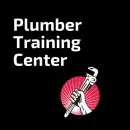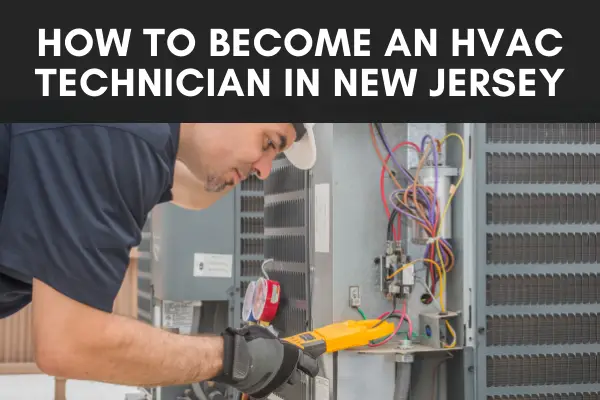Those born and raised in New Jersey hold a unique pride in their state. If you’re thinking of joining them or are already in NJ, you might be considering a creditable career in heating, ventilation, and air conditioning (HVAC).
HVAC techs in New Jersey make about 10% more than the average tech in the U.S. One of the highlights of the HVAC industry is that you can begin working straight out of high school by attending a trade school or an apprenticeship program. You can then further your career through optional certifications or aim for your HVAC Contractor License from the state itself.
Do You need an HVAC License in New Jersey?
The State Board of Examiners of Heating, Ventilating, Air Conditioning, and Refrigeration Contractors only offers HVAC Licenses to HVAC contractors. These individuals work for themselves and may employ other HVAC techs.
HVAC techs do not have state requirements or licensure procedures; however, some jobs may require HVAC techs to hold certain certifications to legally work with refrigerants or high-pressure and low-pressure boiler systems.
Types of HVAC Licenses in New Jersey
This article will discuss the following licenses and certifications for HVAC techs in NJ:
- Environmental Protection Agency (EPA) Technician Certificate
- Black Seal License
- HVAC Contractor License
Becoming an HVAC Tech in NJ
Before applying for a license or certification, you will need to have sufficient knowledge and experience in the HVAC field. Most HVAC techs begin their careers after finishing high school, through either a trade school program, associate’s or bachelor’s program, or an apprenticeship.
Trade schools focus on teaching you a specific skill set related to HVAC work. These programs can last anywhere from 6 months to 2 years. Sometimes trade school credits can count towards an associate’s degree.
Associate’s or bachelor’s degrees in an HVAC-related field serve as a great knowledge base for work and licensure.
Apprenticeships incorporate classroom learning with paid, hands-on experience. These generally last at least 4 years and have you working under a licensed and/or experienced HVAC-R (refrigeration) tech to learn the ropes.
EPA Technician Certification for HVAC Techs
Many HVAC techs work as HVAC-R techs, handling refrigerants and working with different refrigeration systems. Since the Clean Air Act was passed over 20 years ago, HVAC techs working with refrigerants have been required to hold the Section 608 Technician Certification.
There are four specifications for this certificate, and each is earned after you pass the correlated EPA exam.
- Technicians working with small appliances should receive their Type I Certification.
- Technicians servicing or disposing of high- or very high-pressure appliances need the Type II Certification.
- Technicians servicing or disposing of low-pressure appliances require a Type III Certification.
- Technicians who want to work with all types of equipment need the Universal Certification. This certification is given through a proctored exam and cannot be open-book.
A list of certification programs and testing sites can be found here. Reach out to your preferred site for more information on certification requirements, fees, and exam dates.
Black Seal Licenses in NJ
The Black Seal License in NJ is another name for the boiler license. If you plan to be an HVAC tech who works with high (over 100 horsepower) or low-pressure boilers, you will need to get your Black Seal License.
To apply for this license, you must be 18+ and have:
- 90+ days of experience working in a place that has a boiler that is over 100 hp or has more than 4 million BTUs. This boiler must have a pressure of >15 PSI for steam or <160 PSI if it’s a hot water system.
- If you don’t have this experience yet, check out an Externship Program like this one
- An endorsement from your current employer
- For those working with boilers over 500 hp, you must have two licensed engineers endorse you
- Completed the application and paid a $200 application fee
- Include a 2” x 2” passport photo and all original documents – photocopies are not accepted
After your application is submitted and approved, you will receive instructions on when and how to take the official exam. This exam has 50 multiple-choice questions and you must score a 66% or higher to receive the Black Seal License.
Black Seals are good for one year, after which you must apply for renewal.
New Jersey HVAC Contractor Licenses
HVAC Master Contractor Licenses are given out by the NJ Division of Consumer Affairs. The application process is solely completed online, which means you’ll need electronic versions of all of your documents in .PDF, .TIFF, or .JPG formats.
To receive this license, you’ll need to apply for the examination, pass the exam, and pay all fees. The requirements to apply for the examination are:
- Be 21+
- Meet ONE of the following:
- Hold a bachelor’s in HVACR and one year of work experience OR
- Hold a bachelor’s in a related field and 3 years of experience OR
- Have 5 years of HVACR experience, including 4+ years as an apprentice and one year as a journeyman
In your application, you should include:
- Signed and sealed work certifications completed by your supervising contractor(s)
- W-2s as proof of your apprenticeship experience and 1-year journeyman experience
- Any transcripts
- Certificate of Completion from your apprenticeship program, if applicable
- A $100 application fee
The Board meets once a month to review applications. Once approved, you’ll need to sit for the exam, pay the $160 licensing fee, hold a $3,000 surety bond, and hold $500,000 in liability insurance. After all of these stipulations have been met and you pass your exam, you will receive your license.
Renewals
These licenses expire on June 30th of even-numbered years. You can renew your license for $160 by completing the application online, submitting 5 hours of Continuing Education, and showing proof of your surety bond and liability insurance.
HVAC Tech Salaries in New Jersey
HVAC-R tech salaries can vary greatly, meaning the more experience and certifications you have, the greater your earning potential.
General HVAC techs in NJ earn around $54,500 per year. The average boiler operator with a Black Seal License earned around $61,000 and HVAC contractors make upwards of $88,300.

